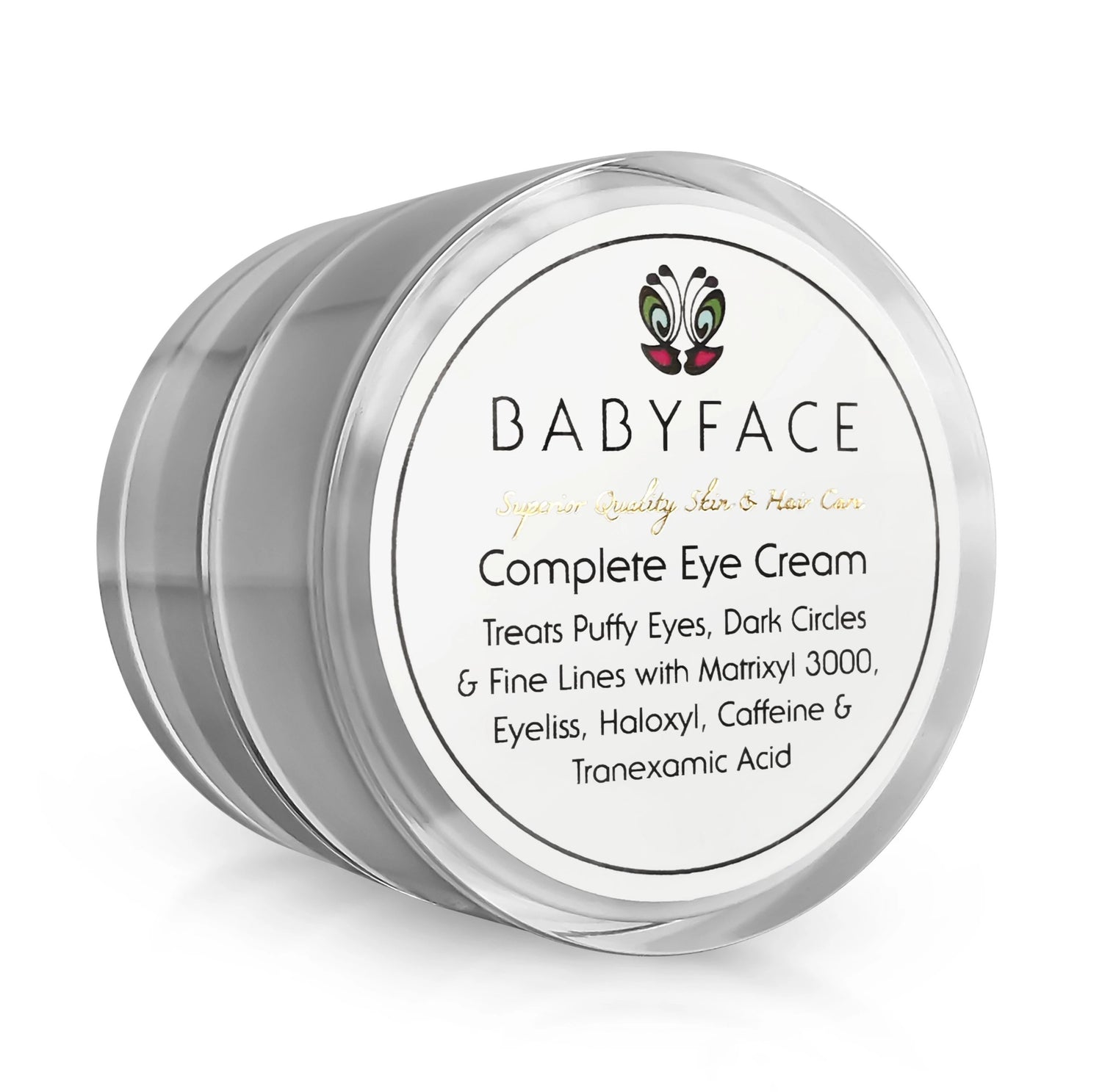Which Form Of Vitamin C Is Right For You?
Giorgia G.Share

Did you know there’s more than one type of Vitamin C?
What you thought was one standalone ingredient turns out to be a big anti-aging family where every member has its own superpower.
One kicks wrinkles off your face while another gets rid of acne. But how can you tell which one is right for you. I mean, how do you compare an orange to… well, another orange?
Here’s a quick guide to help you figure out which form of Vitamin C is right for your skin type and needs:
Best For Anti-aging: L-Ascorbic Acid (LAA)
L-Ascorbic Acid (LAA) is the pure form of Vitamin C. Read: the most powerful… and the most unstable.
Let’s start with the pros. LAA is an anti-aging powerhouse. Here’s how it keeps your skin young:
- Antioxidant: It destroys free radicals before they can give you fine lines and wrinkles.
- Brightening: It inhibits melanin production to fade away dark spots.
- Firming: It boosts the production of collagen, the protein that keeps your skin firm.
- Sun protection: It enhances the sun protection of your sunscreen, especially when used together with Vitamin E and ferulic acid.
So, where’s the catch? There are two:
- Unstable: L-Ascorbic Acid has a short shelf life. It goes bad even faster when exposed to light and air (beware of see-through packaging).
- Irritations: LAA needs a low pH of 3.5 to penetrate your skin and work its anti-aging magic. Problem is, low pHs irritate and sting sensitive skin.
If your skin tolerates LAA, go for it. It’s the most effective of the lot. You can find it in our Super-C 20% Vitamin C Serum, where it plays together with vitamin E and ferulic acid to boost sun protection. We’ve sneaked the peptide Matrixyl 3000 in there too, to firm skin faster.
Dry skin? Check out Massive Hydration Hyaluronic Acid Serum with Vitamin C & Matrixyl 3000. It’s the perfect cocktail to fight off wrinkles, dryness and saggy skin all at once.
Best For Sensitive Skin: Magnesium Ascorbyl Phosphate (MAP)
Magnesium Ascorbyl Phosphate is by far the best choice for sensitive skin. And not just because it’s non-irritating.
Truth is, most Vitamin C derivatives can’t live up to L-Ascorbic Acid. Their anti-aging properties are weaker and can’t fight wrinkles and sagginess as well.
MAP is the exception. Studies show it’s just as effective as LAA at boosting collagen production! If you were afraid of switching, go ahead. You won’t lose any benefits.
The icing on the cake? MAP is more stable than LAA, so a bottle will last you longer. You don’t have to hurry up and finish it in a few weeks.
You’ll find Magnesium Ascorbyl Phosphate in our MAP Vitamin C Serum. It has a whooping 15% MAP, 3 times more than any other product on the market today.
Best For Acne: Sodium Ascorbyl Phosphate (SAP)
Got acne? Sodium Ascorbyl Phosphate is your new BFF.
Here’s how it works: when the sebum on your skin oxidises, your skin gets inflamed. Cue clogged pores, redness, breakouts… It’s pimples galore. Studies show SAP can reduce sebum oxidation by up to 40%!
Wait, there’s more. SAP is a natural acne killer, too. Research shows that SAP is more effective at killing P. Acne (the bacteria that causes acne) than 5% benzoyl peroxide, 1% clindamycin and 0.1% differin.
What about its anti-aging properties? It’s not as powerful as LAA, but it still fights wrinkles and boosts collagen - just to a lesser extent. But hey, you can always switch to LAA once you’ve won your battle against acne.
Sodium Ascorbyl Phosphate is a key ingredient in our Skin Fix Serum and Toner, two powerful cocktails that tackle acne and wrinkles at the same time.
The Bottom Line
No matter what your skin type or skin concern you’re dealing with, there’s a form of Vitamin C out there for you. LAA is for anti-aging. MAP for sensitivity. SAP for acne. Take your pick!
